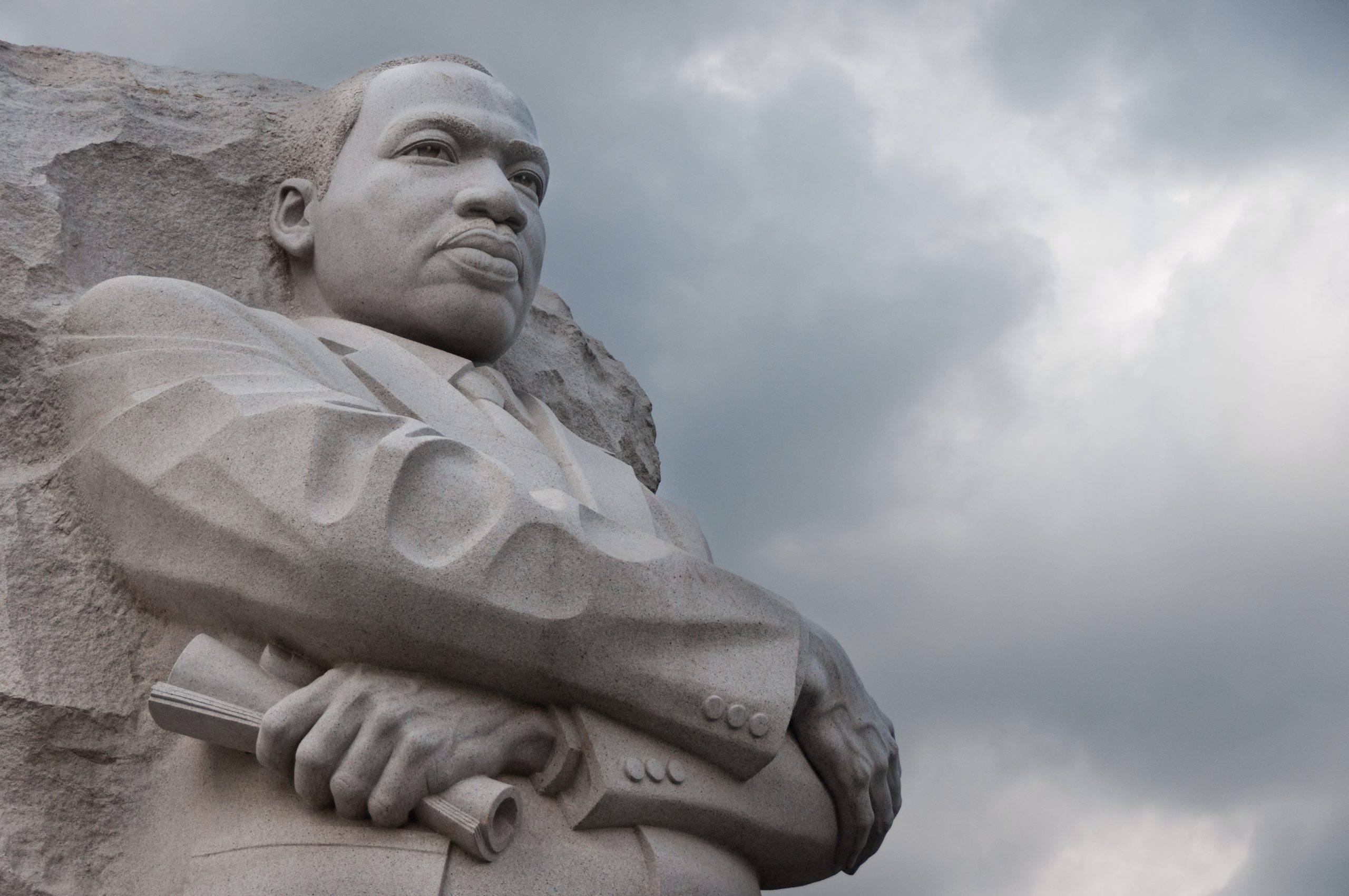7 Dear friends, let us love one another, for love comes from God. Everyone who loves has been born of God and knows God. 8 Whoever does not love does not know God, because God is love. 9 This is how God showed his love among us: He sent his one and only Son into the world that we might live through him. 10 This is love: not that we loved God, but that he loved us and sent his Son as an atoning sacrifice for our sins. 11 Dear friends, since God so loved us, we also ought to love one another. 12 No one has ever seen God;but if we love one another, God lives in us and his love is made complete in us.
13 This is how we know that we live in him and he in us: He has given us of his Spirit. 14 And we have seen and testify that the Father has sent his Son to be the Savior of the world. 15 If anyone acknowledges that Jesus is the Son of God, God lives in them and they in God. 16 And so we know and rely on the love God has for us.
God is love. Whoever lives in love lives in God, and God in them. 17 This is how love is made complete among us so that we will have confidence on the day of judgment: In this world we are like Jesus. 18 There is no fear in love. But perfect love drives out fear, because fear has to do with punishment. The one who fears is not made perfect in love.
19 We love because he first loved us. 20 Whoever claims to love God yet hates a brother or sister is a liar. For whoever does not love their brother and sister, whom they have seen, cannot love God, whom they have not seen.21 And he has given us this command: Anyone who loves God must also love their brother and sister.
1 John 4:7-21
28 One of the teachers of the law came and heard them debating. Noticing that Jesus had given them a good answer, he asked him, “Of all the commandments, which is the most important?”
29 “The most important one,” answered Jesus, “is this: ‘Hear, O Israel: The Lord our God, the Lord is one. 30 Love the Lord your God with all your heart and with all your soul and with all your mind and with all your strength.’ 31 The second is this: ‘Love your neighbor as yourself.’ There is no commandment greater than these.”
32 “Well said, teacher,” the man replied. “You are right in saying that God is one and there is no other but him. 33 To love him with all your heart, with all your understanding and with all your strength, and to love your neighbor as yourself is more important than all burnt offerings and sacrifices.”
34 When Jesus saw that he had answered wisely, he said to him, “You are not far from the kingdom of God.” And from then on no one dared ask him any more questions.
Mark 12:28-34
What follows is the text of a sermon I preached on 26th June 2011 at Southwater Community Methodist Church in West Sussex.
Martin Luther King Junior. Considered by many to have been a revolutionary, he fought against injustice in the United States using nonviolent methods. Martin Luther King became the youngest person to receive the Nobel Peace Prize for his work to end racial segregation and discrimination. His life was tragically cut short in 1968 when he was assassinated in Memphis, Tennessee at the age of 39.
Nelson Mandela. A revolutionary in the battle against apartheid in South Africa. Arrested in 1962 and sentenced to life in prison. Mandela served 27 years in prison before being released in February 1990. After his release he served as leader of the ANC and took part in the negotiations that led to multi-racial democracy. He won the Nobel Peace Prize in 1993, served as president of South Africa from 1994 to 1999 and to this day is regarded as one of the world’s elder statesmen.
Southwater Community Methodist Church. Known throughout the south of England as a band of revolutionaries, demonstrating love to all they encounter. Fighting injustice wherever they see it. Supporting the most needy in their community and further afield. Reaching out to the vulnerable. Working with the youth. Supporting the work of local schools. Striving wherever they can do make a difference in their society. Living out their faith 168 hours a week. Aiming to be disciples of Christ 24/7.
Do you recognise this picture of our Church? Do you see yourself as a part of revolutionary group, striding out to radically impact the world we live in?
Because that’s what you are!
All of us who profess to be Christians are revolutionaries, called to make a difference in our world.
That’s something that at Southwater we’re very good at. But there’s always room for improvement! As a church, and as individuals, we could do better.
Kath has said twice in recent weeks that we, that you, are amazing, and I completely agree. We can’t afford to be complacent though. So today, we’re going to go back to basics and look at what Jesus considered to be the central message of the Christian faith, the most important part of following him.
Today, we’re going to be looking at Mark 12:28-34 and 1 John 4:7-21, and you may find it helpful if you have these open in front of you.
What we’re going to be considering today is nothing short of a revolution. A love revolution. We’ll be looking at three key points: loving God, loving our neighbour, and loving ourselves.
Let’s turn, then, to our first point: loving God. That’s the first part of our love revolution. Before we can do anything else, we just need to love God.
At the beginning of this passage, Jesus is asked by a scribe, an expert on the Jewish law, “which commandment is the greatest of all?” Jesus replies with great simplicity that the most important commandment is, “you shall love the Lord your God with all your soul, and with all your mind, and with all your strength.” Jesus neatly summarises all of the teaching of the Old Testament into this simple commandment: just love God. That’s it. Just love him.
God doesn’t just demand love from us without offering anything in return. In fact, in our reading from John’s first letter, John reminds us that we love because God first loved us. John also says that God demonstrated his love by sending his son Jesus into the world that we might live through him. God loves us so much that he sent Jesus to die for our sins. Jesus loves us so much that he willingly went to the cross and died for us all. That, surely, deserves recognition from us.
Of course, loving is not always that easy. If we say we love another person, we place their needs above our own, we do everything within our power to make them happy. We certainly don’t betray them, lie to them, cheat on them or neglect them. We make a conscious effort to put them first in all that we do.
Claire and I got married last year. On August 13th to be precise. Since then, I’ve tried to put Claire first in everything, not because I feel some obligation or requirement to do so, but because I love her with my whole heart. I want to make her happy. That’s just what you do when you love someone. If I’d selfishly neglected Claire, not spent time with her, not done my best to look after her, you’d wonder whether I really loved her.
Often it’s possible to see the bond of love between people, whether it’s the bond between a husband and wife, a bond between two brothers, or the bond between a group of friends. Just by watching, an outsider can tell that there is a real intensity of feeling there. You can tell when people are close by the way they act towards one another, the things they say to each other, even the way they look at each other.
This is how our relationship should be with God. Do we put him first in everything? Is every fibre of our being, our soul, our mind and our strength, dedicated to loving God? Or is loving God something that we only do on a Sunday morning? Is our love for God evident to those around us? Or is our love for God something that we keep hidden?
If we really love God, if we really do make loving him our first priority, then our relationship with him will underpin our entire lives; what we do, what we think, what we say. Every waking minute should be dedicated to displaying our love for God; listening to him, talking to him, and striving to live out his commands in our lives.
How do we do this in practice though?
Well, this brings us on to our second point. Jesus said that the second most important commandment is, “love your neighbour as yourself.”
This commandment is very closely connected to the first. In John’s letter, John says, “dear friends, let us love one another, for love comes from God.” A little later, he continues, “dear friends, since God so loved us, we also ought to love one another.”
Loving our neighbour, then, loving one another, is a response to loving God. If we obey that greatest commandment, to love God, it follows that we should love others. We should do so because our fellow humans are loved by God, and if we love God, we should love what he loves. By loving others, we are also demonstrating that we love God. This is an indication that we have been transformed by God. John tells us that “God is love.” He doesn’t say that God loves, or that God is like love, but that God is love. When we love God, strive to follow him, and live our lives focused on him, that love floods into us. It transforms us. It transforms our lives. And it can transform our world.
If the best way to serve God is to follow his commandments, we can demonstrate our love for God by loving those around us: not just our literal neighbours, those who live near us, but also our friends, our family, our work colleagues, people we see in the gym, people we see as we pay for our parking. In short, we show our love for God by loving all those we encounter.
If the world only followed this commandment, it would be a very different place. There’d be no more bickering or arguing. There’d be no more violence or theft. Everyone would recognise the value and worth of every other person, and wouldn’t try to belittle other people. On a global scale, there’d be no more war. Nations would seek to live peacefully together. There would be no poverty or hunger, because we’d share what we had with those who are less fortunate than ourselves.
This is the revolution. The love revolution.
And all we need to do is love.
Just love.
Of course, it would be unrealistic to expect people to live this way if they do not know God, our God who is love. But there are two responses to this.
Firstly, we need to ensure that we spread the Gospel far and wide, to make disciples of all nations, as Jesus commanded us to do at the end of Matthew’s Gospel. Simply by living out this commandment and seeking to love everyone we come into contact with is a very effective way of making disciples. If we just show love to all those we encounter, if we put the needs of our neighbours before our own, if we show real sacrificial love, people will see something different about us. They’ll want to know why we’re different. They’ll want to know why we love them. And we can point them to Jesus as the answer.
We love them because he loves us.
The second response is to acknowledge that whilst the world cannot be expected to follow this commandment if they do not know Christ, there are enough of us to make a difference in the world. We can act together as the Church of Christ.
There are two billion Christians in the world. Imagine how the world would be transformed if all two billion of us lived according to this commandment?
If we just loved.
The two greatest commandments seem so simple. It seems like there’s nothing to them. But in this short statement Jesus is being truly revolutionary. He is calling us all to be revolutionaries in his love revolution.
Being a revolutionary, though, can be difficult. It’s all well and good to talk of a love revolution here in Church, but what about the other 167 hours of the week? Out there, in our every day lives, it can be very hard to love our neighbours.
How do we love that irritating person in our office? How do we love the person who cuts us up whilst we’re driving? How do we show love to the person in the supermarket who grabs the last bag of Braeburns?
At the most basic level we love them by liking them, by not getting irritated or angry, by seeking to serve them.
Go for a coffee with that irritating guy at work.
Let that driver who is trying to cut us up pull in in front of us.
Offer that last bag of apples to our fellow customer with good grace.
These are all small things, but if we all based our actions on loving our neighbours, if we all sought to demonstrate love in everything we did, the world would be a remarkably different place.
What about bigger issues?
What about the hurt caused by a parent who rejected us?
Or a sibling who has tormented us?
What about the partner who tore our lives apart by not loving us as they should have done?
What about that employer who has made our lives a living hell?
How can we possibly love in these circumstances?
John again has words for us here. We need to “know and rely on the love that God has for us.” We can draw comfort from the fact that God loves us. John goes on that, “there is no fear in love. But perfect love drives out fear, because fear is to do with punishment.”
We need not fear because ultimately we are going to a better place, a place where Jesus is, where his Father is. And if we strive to love now, all fear will leave us.
If we love unconditionally, as Jesus loves us, there is no fear. Often we hold back our love because we fear rejection and humiliation. But if we just love, without expecting anything in return, then all fear will disappear.
Loving unconditionally can be very hard. That’s how we’re called to love, though. Sometimes we need to make the first move. Even if we’ve been terribly wronged, we need to love. We need to forgive.
Until we forgive, we cannot be free from the anger and the hatred and they will consume us. Anger and hatred will becoming the guiding forces in our lives, not love.
We might need to pick up the phone, or to write a letter, or to arrange to meet up, even if we feel the other person it at fault. But if we don’t make the first move, the situation might never resolve itself. We’re called to love and in order to love we need to face up to relationships that are marred by hatred, by upset and by disappointment.
We need to love, and we need to forgive.
If we’re going to love our neighbours, we need to take action to rectify ill-feeling.
That’s what we’re called to do.
That’s the love revolution. To just love. To just love God. To just love our neighbours.
The third point I think we need to consider is one that is often overlooked. In the command to love others, Jesus says, “you shall love your neighbour as yourself.” There’s a big assumption here; that we love ourselves.
We need to love ourselves before we can love our neighbour, before we can display the unconditional love that Jesus shows to us.
We’ve just seen that John, in his letter, says that, “perfect love casts out fear.” Often our fear prevents us from loving, our fear of rejection or humiliation. We can’t bring ourselves to love because we’re worried about the reaction our love will get. We can’t bring ourselves to love because we can’t see how anyone could possibly love us.
Over the last few years, I have met so many people who not only don’t love themselves, but hate themselves.
They feel inadequate, useless, or worthless.
They hide themselves away.
They tell themselves that they are a burden on those around them, and that no-one could possibly love them.
Sometimes they cut themselves.
Sometimes they even consider taking their own lives.
This is one of the saddest situations in our society today.
Perhaps you feel this way about yourself. I did, until fairly recently. I felt like a burden to others. I couldn’t see how other people could love me.
If you do feel this way, I want to tell you that you’re wrong.
People do love you.
You have impacted on the lives of people far more than you could possibly have imagined.
There are people who love you passionately. You might not know it, but it’s true.
We have value and worth in their eyes, even if we struggle to see that for ourselves.
Look around you. We’re Christian brothers and sisters. We love you. We love each other.
We love because God loves us. And we love you.
Perhaps you’re one of the fortunate ones. Perhaps you don’t struggle with loving yourself.
If you don’t struggle with this, then I will guarantee that at least one of your close friends does. You’d be surprised at how many people do.
The truth is, though, that God loves every single person on this planet. When he created the human race, he saw that his creation was “very good;” everything else he made he thought was simply “good.”
God loves us so much that he sent his son to die for us, so that we could once again be brought into his arms. God doesn’t see us as worthless, or useless, or hateful; he loves us, and that is a remarkable thing.
In conclusion, there is a vital message for us all in this passage.
We just need to love.
We just need to love God.
We just need to love our neighbours.
We just need to love ourselves.
This is the love revolution.
Just love.
That’s what we’re called to do.
Just love.














Leave a Comment